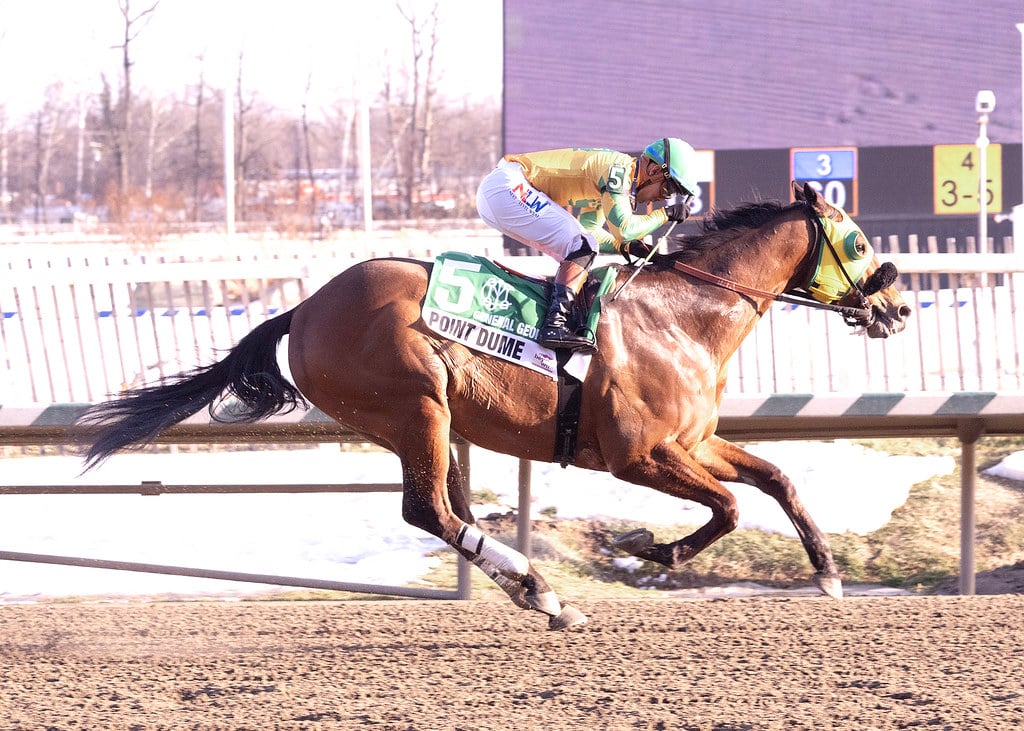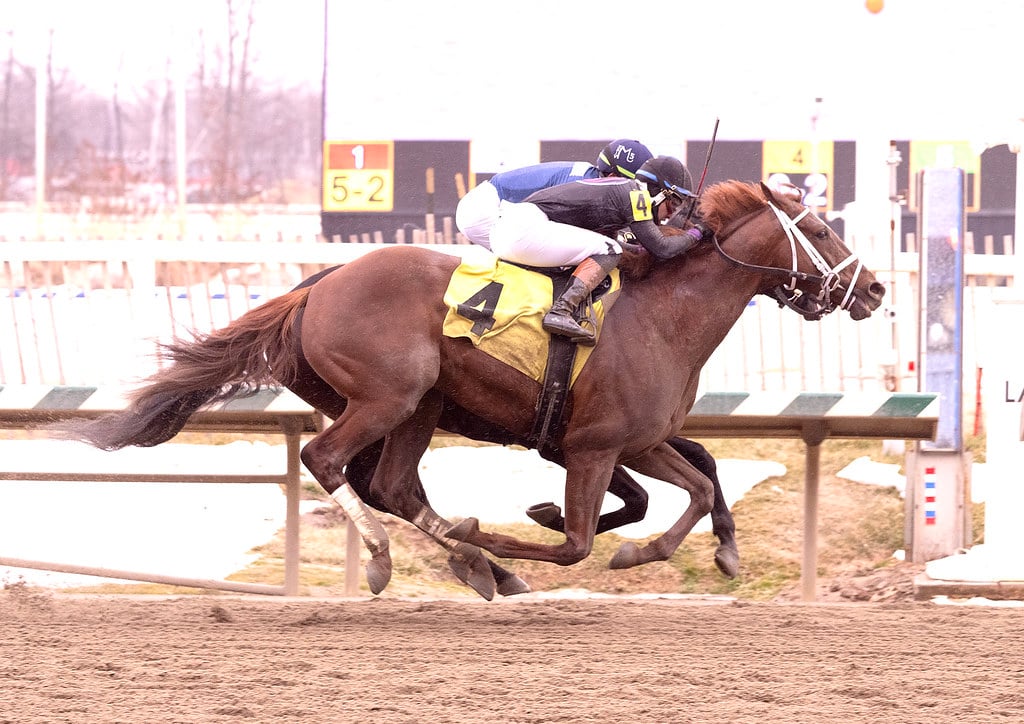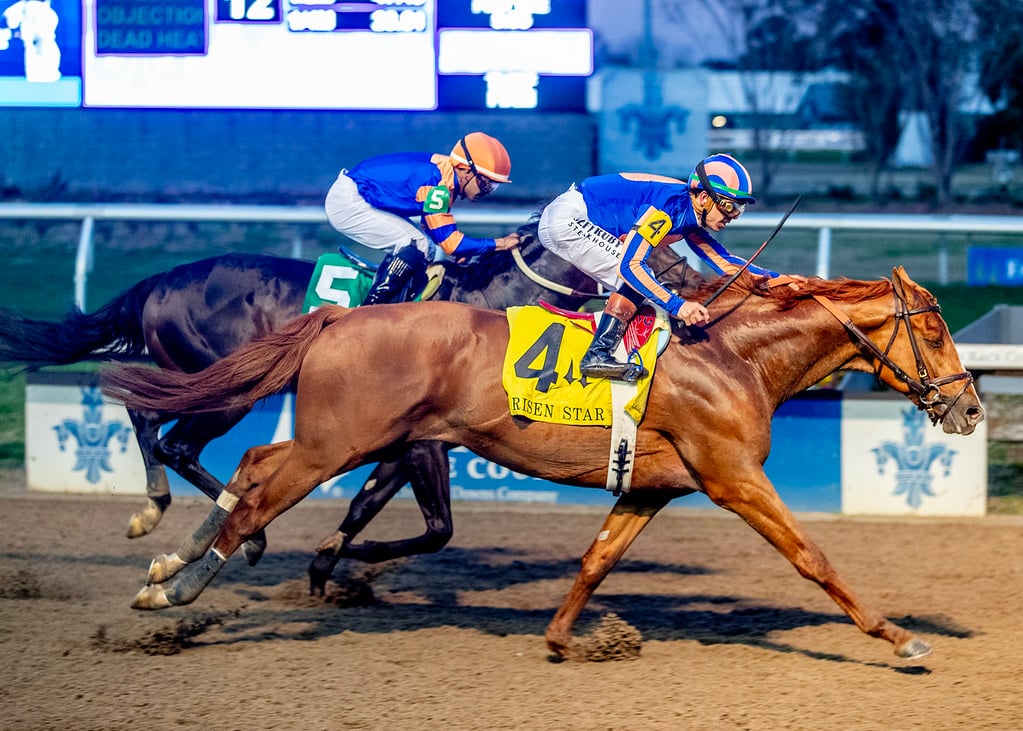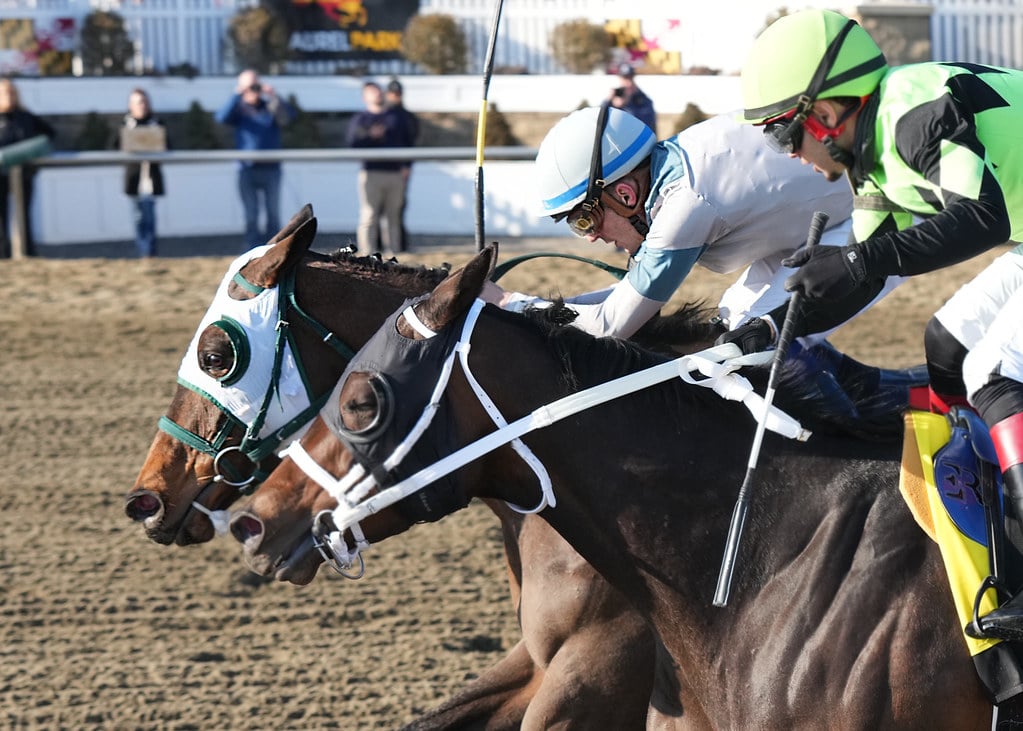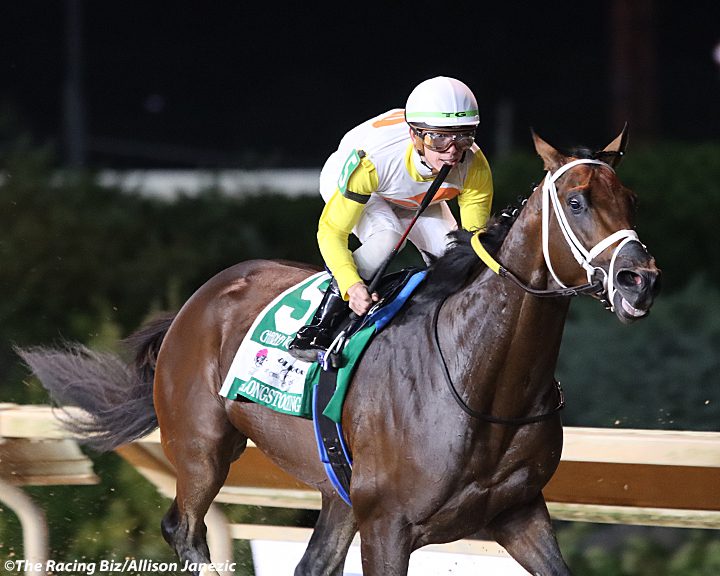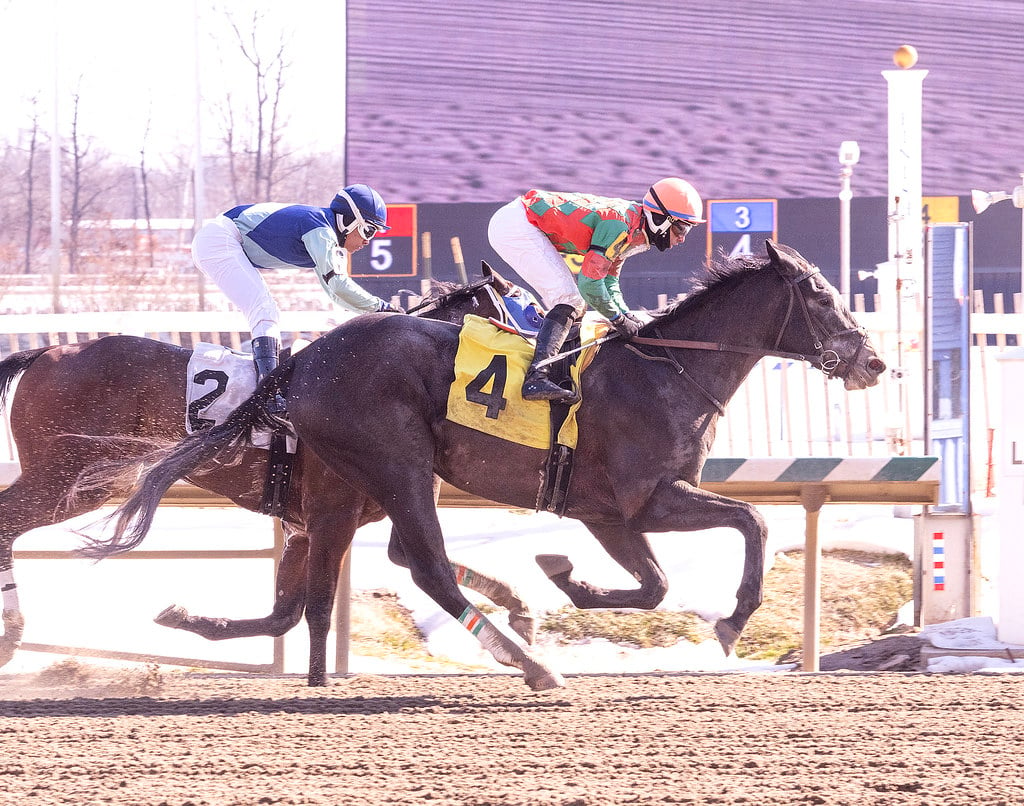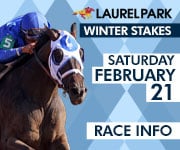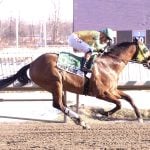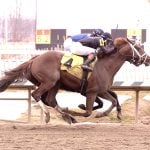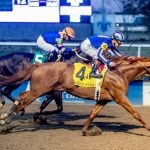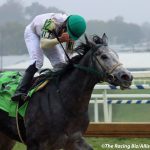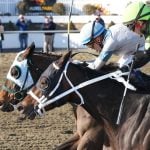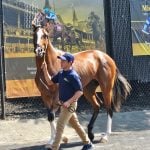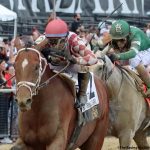Pimlico: 10 great moments
The current version of Pimlico had its swan song Saturday, and what a sendoff it was. Journalism overcame bumping and an impossible-to-bridge deficit to run down Gosger late to prevail in the 150th Preakness Staes.
It was just one of innumerable great races to be contested at Old Hilltop. As one of the oldest race tracks in the country, Pimlico Race Course has hosted more than its fair share of tremendous thoroughbred races over the past 150 years on both dirt and turf.
Here’s one reporter’s take on the best (and check out the video above to see ’em).
1.
The Great Match Race
Although Pimlico is known first and foremost for the Preakness, perhaps no race symbolizes the history and grandeur of Old Hilltop more than the 1938 Pimlico Special in which Seabiscuit, the 2-1 underdog, upset 1937 Triple Crown hero War Admiral in a stirring match race that captivated the nation.
Well before television broadcasts and simulcasting came into vogue, it is estimated that over 40 million people listened to the radio broadcast of one of the most anticipated horse races in history and it lived up to the hype as Seabiscuit rebuffed a serious challenge from War Admiral on the far turn en route to a three-length score while stopping the timer in 1:56 3/5 for the one mile and three-sixteenths, fittingly the stakes and track record at the time.
2.
Three-horse Thriller
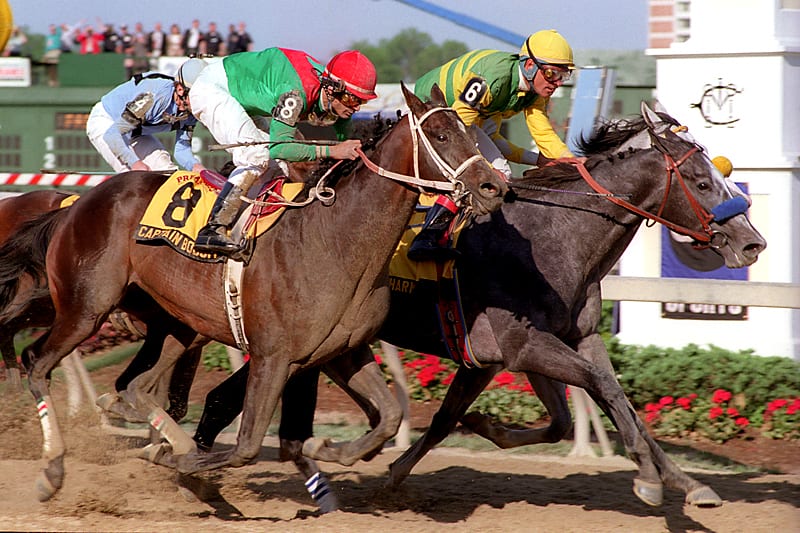
Two weeks after he outfought favored Captain Bodgit to capture the 1997 Kentucky Derby, Silver Charm was still the second choice when he and the Bowie-based Bodgit renewed their rivalry in the Preakness. Another California invader, Free House, joined the fray and those three battled to the wire in a stirring rendition of the Preakness where Silver Charm again narrowly prevailed.
“Shoulder to shoulder, head to head, nose to nose,” is how track announcer Dave Rodman described the stretch duel.
Silver Charm’s bid for Triple Crown glory three weeks later in the Belmont Stakes was foiled by Touch Gold, who went to his nose at the outset of the Preakness and could only settle for minor spoils when fourth in Baltimore.
3.
Silence Is Golden
In another of a long series of Preakness renewals involving genuine rivals, Sunday Silence and Easy Goer met again in Baltimore just two weeks after Sunday Silence had edged away from favored Easy Goer to capture the 1989 Kentucky Derby by 2 ½ lengths.
In the Preakness, the duo hooked up nearing the quarter-pole and ran virtually in stride with each other the rest of the way in one of racing’s most famous stretch duels. Sunday Silence got the nod in Baltimore, setting up a third edition of the rivalry three weeks later.
But following a contentious renewal of the Preakness, Easy Goer attained a measure of revenge by easily winning the Belmont Stakes and denying Sunday Silence his bid at becoming the sport’s 12th Triple Crown winner.
4.
Rated Double A
In what has proven to be the greatest rivalry in Triple Crown history, Affirmed and Alydar met for the eighth of what would ultimately be 10 times in the 1978 Preakness, just two weeks after Affirmed had defeated his rival in the Kentucky Derby.
In the Preakness, Alydar was part of a moderate early pace, which left him enough to fend off Alydar by a head. Three weeks later Affirmed narrowly outgamed that rival to become the sport’s 11th Triple Crown winner by taking the Belmont Stakes.
They would meet once more after that, in the August Travers Stakes at Saratoga. This time Affirmed would be first past the post, but he was disqualified after cutting off Alydar and forcing him to take up sharply, thus putting Alydar into first. That would be their final meeting, with Affirmed winning seven of the 10.
5.
A Preakness Record
Two weeks after he ran past a bulky field in the final half-mile to capture the Kentucky Derby, Secretariat would dazzle onlookers and his own jockey in the Preakness.
Last in a six-horse field approaching the first turn at Pimlico, Secretariat circled the field to seize command on the backstretch and went on to hold Sham safe to win by 2 ½ lengths. It was the sort of move that pretty much never works but worked perfectly for Secretariat and jockey Ron Turcotte.
Initially, Secretariat was only credited with covering the distance in 1:54 2/5, but it has since been amended and now “Big Red” holds the stakes record for the Derby (1:59 3/5), Preakness (1:53) and Belmont (2:24) during his run to Triple Crown immortality.
Farma Way holds the Pimlico track record for 1 3/16 miles, having covered the distance in 1:52.55 in winning the 1991 Pimlico Special.
6.
The Sheba Shuffle
Jockey Chris McCarron headed into the 1987 Preakness with the mount aboard Derby champ Alysheba, a son of Alydar.
Prior to the race, he happened to catch sight of his sisters dancing in the Pimlico dining room. The “Sheba Shuffle,” they called it.
That was appropriate, since in the Kentucky Derby two weeks earlier, Alysheba had to withstand a roughly run race, including a pair of times when leader Bet Twice came over in front of him in the lane.
The ’87 Preakness provided yet another memorable renewal of the Middle Jewel of the sport’s Triple Crown featuring rivals. This time Alysheba overhauled Bet Twice in the final sixteenth to secure the second leg of the Triple Crown.
7.
Hungry Like the Wolf
At a track already steeped in history, the inaugural Frank DeFrancis Memorial Dash in 1990 at Pimlico featured a stellar field of sprinters from across the country. Later the De Francis would become a Grade 1 and, on occasion, a champion-making race.
In its first running, it attracted 1989 Eclipse champion sprinter Safely Kept, a Maryland-bred filly, and other top sprinters. But although it became a showcase for future and past Breeders’ Cup Sprint winners, it was Bowie-based Northern Wolf, also a Maryland-bred, who captured the inaugural running for trainer Hank Allen in 1:09, equaling the track record.
That record would stand until 2019, when Covfefe stunningly lowered it to 1:07.70.
8.
The Year of the Cat
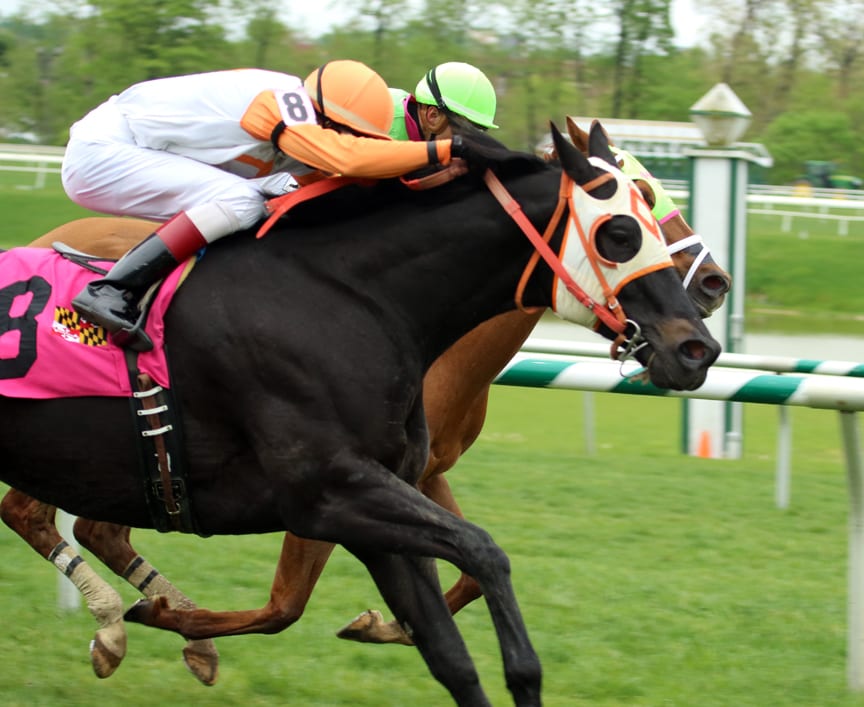
In what proved to be the 26th and final stakes victory of his Maryland-bred Hall of Fame career, Ben’s Cat surged late between the speedy Rocket Heat and Spring to the Sky to capture the $100,000 Jim McKay Turf Sprint for owner-breeder-trainer and Hall of Fame conditioner King T. Leatherbury.
“2016 is the year of the Cat,” track announcer Dave Rodman told the crowd as the 10-year-old got up to win.
It was Ben’s Cat’s fifth win in the Jim McKay Turf Sprint. The Parker’s Storm Cat gelding won 32 of 63 races and earned over $2.6 million, including four graded stakes wins.
9.
Not Close, Plenty of Cigar
After traveling across the country and even around the globe to compete against the best horses in training, Cigar, likely the greatest Maryland-bred runner of all-time, came home to capture the 1995 Pimlico Special for trainer Bill Mott and jockey Jerry Bailey. Bred by Allen Paulson and foaled at Country Life Farm in Bel Air, Cigar’s win in the Special was his only race in his home state.
Cigar led throughout and edged clear from Devil His Due and fellow Maryland-bred Concern to score in 1:53.72 as the 2-5 favorite. It was Cigar’s seventh consecutive victory; he would go on to add nine more before tasting defeat again.
10.
One for the Home Team
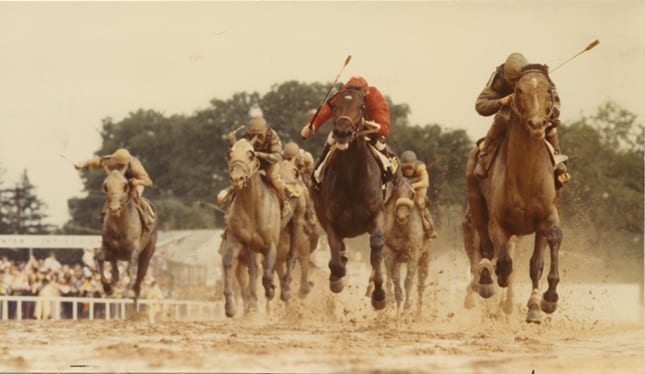
Local horse, local trainer, local jockey.
After a sixth-place finish in the Blue Grass didn’t seem a promising route to the Kentucky Derby, which he skipped, Maryland-bred Deputed Testamony delivered the best performance of his career with local rider Donnie Miller, Jr. aboard to capture the Preakness Stakes in 1:55 2/5 for longtime Maryland trainer Bill Boniface.
Over a sloppy Old Hilltop surface, Deputed Testamony slipped through along the rail to win by almost three lengths. That remains the most recent Preakness win by a Maryland-bred.
A year later – almost to the day – Deputed Testamony won the 1 1/16-mile City of Baltimore Handicap in a track-record time of 1:40 4/5. That record still stands.
LATEST NEWS


